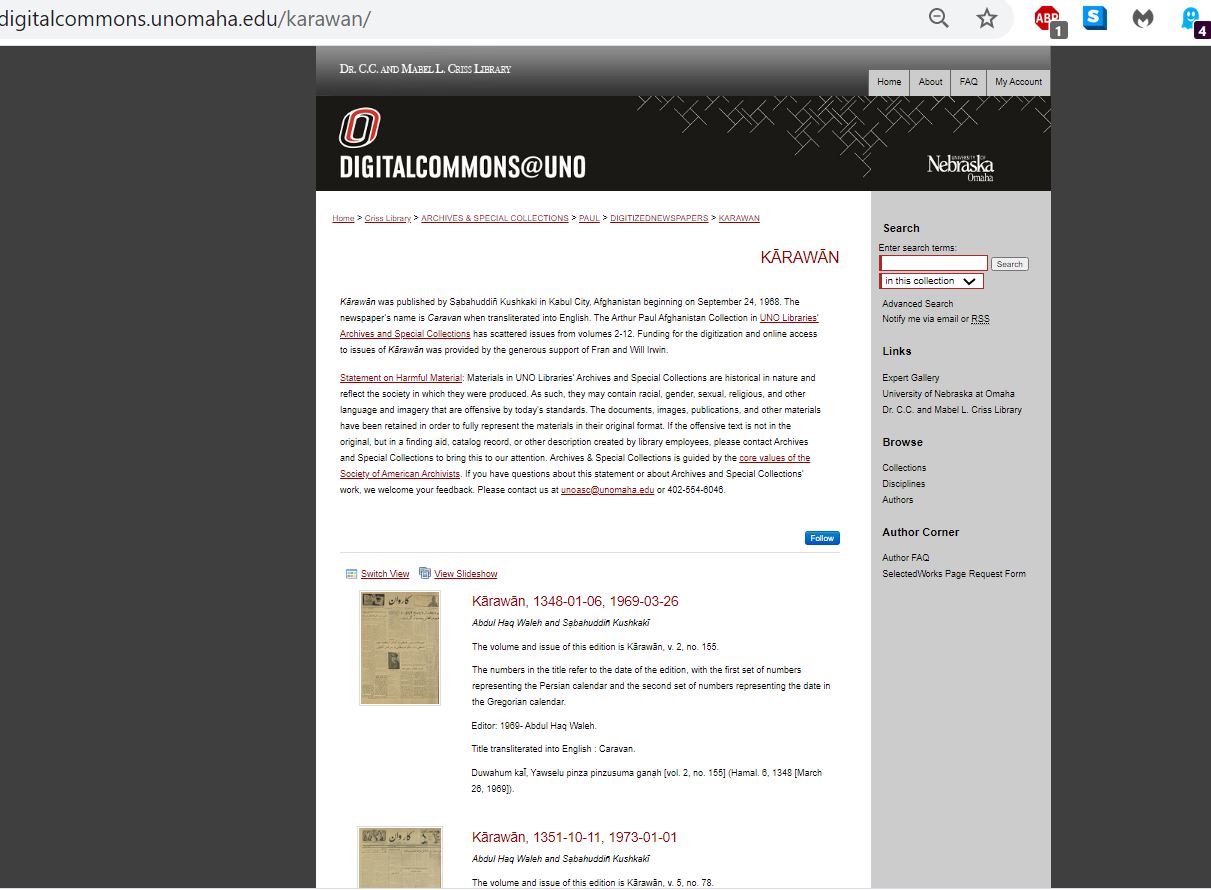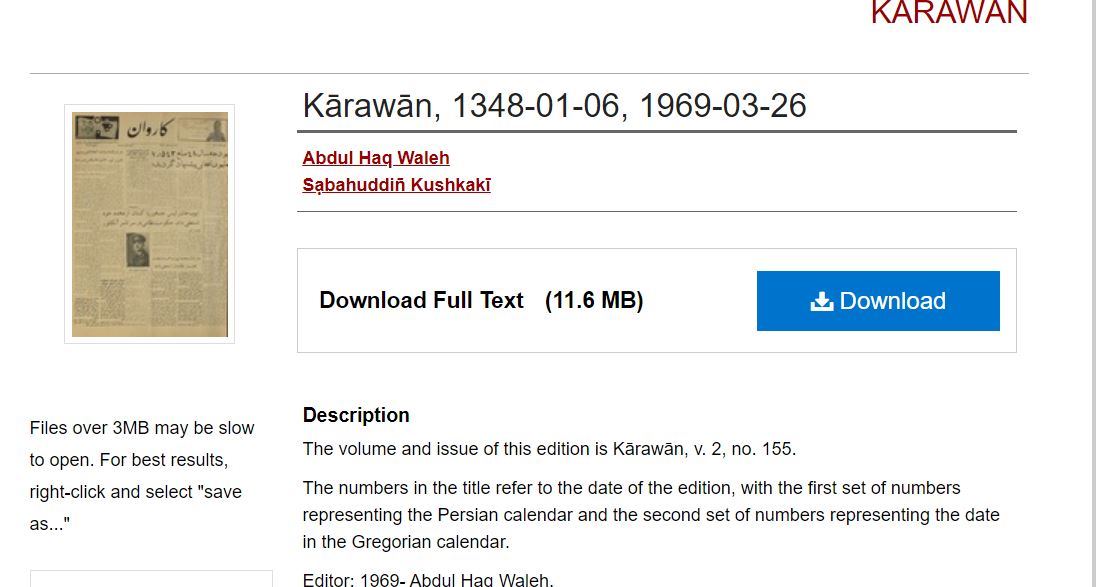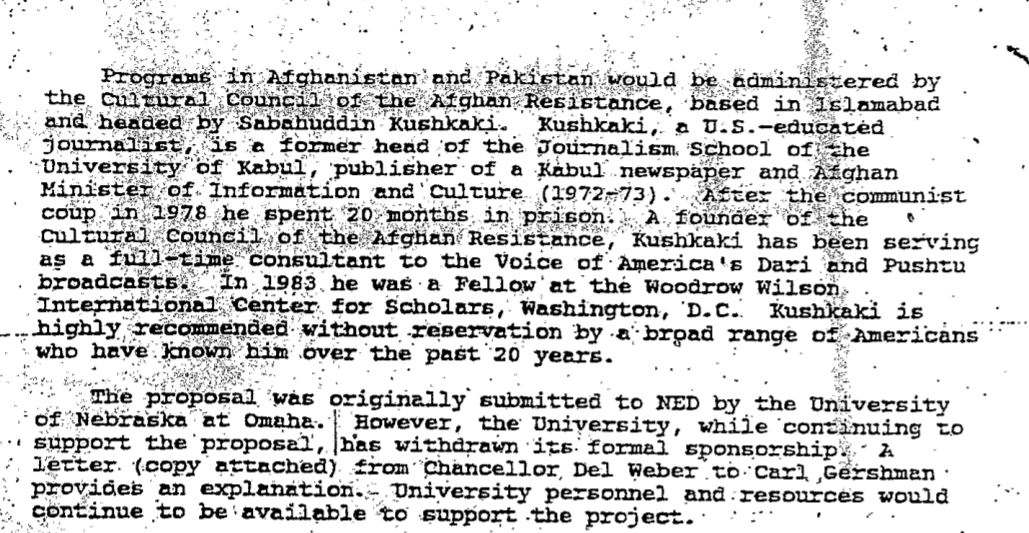Since the US invasion of Afghanistan, we continue to hear about the success of US policies when it comes to the nation-building in a war-torn land. We also continue hearing the ongoing violence in the country, and how we are winning the war. Policies aside, I personally support and stand by our American troops our soldiers overseas!
We rarely hear about the projects that lead to a sort of cultural memory preservation or often these are relegated to backstage. And our homeland is a major sponsor of such projects overseas. Domestically, public institutions of higher education continue to perform miracles by offering more and more digitized resources. Open Access matters!
Karawan is indeed a breath of fresh air in the OA domain. The University of Nebraska has digitized its issues. That can be accessed here.


The site-description states that it was established by Sạbahuddin̄ Kushkakī (not to be confused with Burhanuddin Kushkaki) on 24 September 1968. Who was Sạbahuddin̄ Kushkakī is the question to which the answer cannot be simple? The US National Security Archive at GW University provides some insight on him in the context of National Endowment for Democracy (NED). A document entitled Afghanistan Democratic Education Project is informative of the early US efforts to carry out democratic goodwill projects. One can also find more information about him through the FOIA releases here (page.3) I will not dwell upon the trajectory of “the American Friends of Afghanistan, as one can read into who could have been its executive director at one point: z.k.”

The point here is that due to these policies we have an effect of unintended consequences– we have access to Karawan!